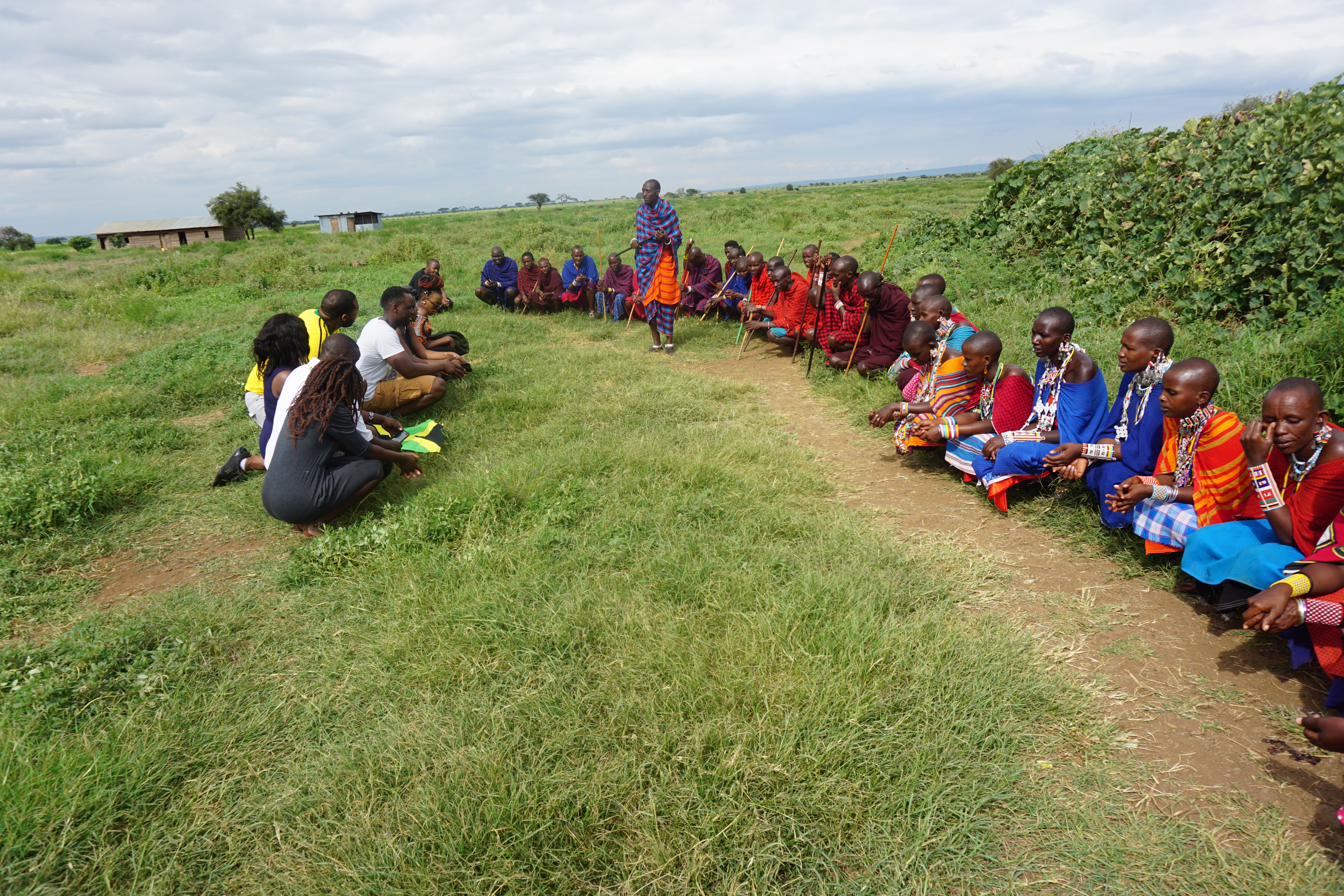In 2018 whilst visiting Kenya, Martin Daay had the opportunity to visit a rural Massai village in Amboseli near mount Killamanjaro. The Maasai community is a unique pastoralist tribe with a rich culture and heritage that has put Kenya and East Africa on the global map as a major tourist attraction.
Whilst touring the village, MSc Healthcare Management student, Martin began speaking to the elders about conditions in the village to which they touched on the subject of fuel and the difficulties they have at times obtaining it.
Furthermore, upon entering a few of the homes in the village, Martin saw the cramped conditions the people were living in and the potential health risks associated with burning fuel in these environments. In these communities, after sunset, many people have no light and are forced to use kerosene lamps. Consequently, these communities have seen millions of children each year get severely burned. Sadly, kerosene is the leading cause of child poisoning in Africa and one of the main causes of respiratory diseases for women in the developing world. It is also three times the cost of electrical energy.
Upon leaving the village, Martin thought of the possibility to introduce solar technology to the village. The use of solar technology could lead to a reduction of issues he witnessed in the village; health hazards, fire safety and spending cost.
In August 2018, after returning to the UK, Martin launched ‘Project_Daaylight‘ with the support of his friends in Kenya and the UK. In phase one of the project, Martin self-funded 40 solar lanterns for the village in Amboseli.
“We believe that all humans have the right to access energy.”
Martin has received positive feedback from members of the Amboseli Maasai village about the impact of his donation. Improved light quality for children doing school work at night, improved air quality in the homes and reduction in spending on Kerosene. This humble success has further motivated Martin to develop phase two of his project.
Phase two of Project_Daaylight, which is due to begin in April 2020. Will see the introduction of high capacity solar powered systems to the village. Martin plans to install a total of twelve home lighting systems in addition to providing solar lanterns in the village. These systems will allow the villagers to cater to their basic energy needs. Furthermore, Project_Daaylight aligns with the United Nations 2030 Sustainable Development initiative.
Project_Daaylight aims to:
- Provide scalable solar power solutions to the village to gradually eliminate the use of kerosene lamps.
- Develop a social enterprise working with young women and men in the village to train them on solar technology.
- Promote the use of sustainable solutions (health management and Environment management)
In addition to these aims, Project_Daaylight hopes to further contribute to addressing some of the social challenges faced by these communities such as high rates of unemployment and child marriage.
“It is our hope that we can support the Maasai community with Project_Daaylight to reduce the shortcomings such as lack of access to electricity (energy), address youth unemployment, provide access to solar training and support health initiatives in the community.”
Martin is very passionate about supporting others, whether they are here in the UK or other locations around the world. Martin’s vision is to support the Amboseli Maasai village attain 100% of their electrical needs via renewable solar energy.
Would you like to make an impact? Get involved with Project_Daaylight and gain a unique insight on contemporary issues in the global economy on our MSc Healthcare Management programme.




I would love to assist your project. Well done for taking on the initiative for helping those in need.